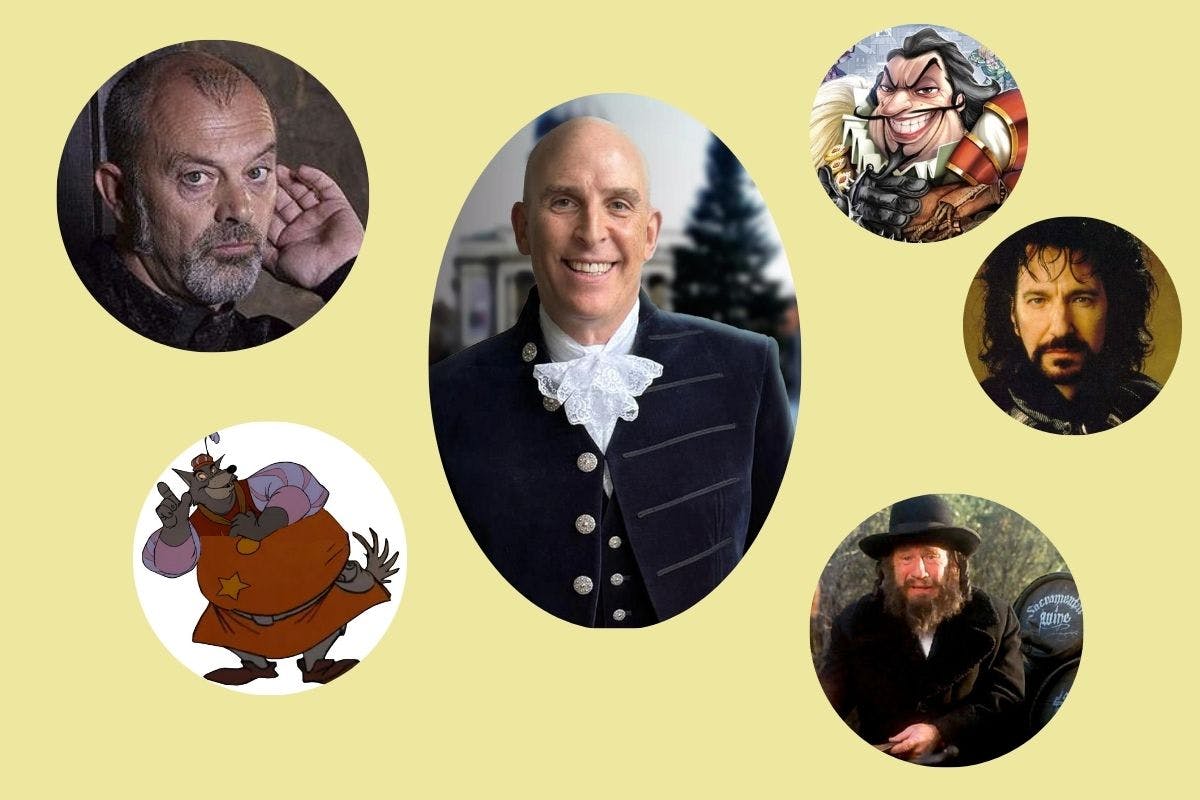Published: 17 December 2023
Last updated: 5 March 2024
Few knew that Nicholas Winton saved the lives of so many Jewish children during the war - one of them my father. It's hard not to tear up during this film.
For Oscar-winning producer Emile Sherman, it began when he was filming The King’s Speech in the UK and a member of his team showed him the now famous clip of an unsuspecting Nicholas Winton on the popular entertainment BBC TV show That’s Life, surrounded by many of the now adult children he had brought to the UK by train, saving them from the Nazis in Prague.
You can watch it on YouTube. It’s had more than 41 million views to date. It’s a real tear-jerker moment, no matter how many times you watch it. Sherman recognised its dramatic potential immediately. “We knew we had our ending,” he told the audience at an emotionally-charged preview screening of One Life in Sydney last week.
Among the audience were several descendants of “kindertransport” (children’s transport), the world’s greatest rescue of refugee children, and one remarkable visitor, Alice Hubbers, aged 99. Out to see her family on her annual holiday from the UK, the spry Hubbers left Vienna on December 10, 1938.
With the help of the Red Cross, 10,000 children between the ages of six and 16 were brought to Britain, thanks to special legislation passed by the government of the day. They were allowed one small suitcase each. I was surprised to learn from One Life that in its initial phase, the operation only covered Germany and Austria, Czechoslovakia not being considered at risk. Until Winton, a London stockbroker with German Jewish heritage, came along.
A committed socialist, Winton spent a month in Prague helping friends working with refugees. There he found his calling and began compiling lists of mostly Jewish children whose parents wanted to send them to safety. Back in London he negotiated visas, and appealed for donations to pay the warranty required by the government for each child, while placing stories in the press appealing for foster homes and sponsors. British families, most of them not Jewish, responded with enthusiasm.
Talking to Hubbers in the foyer afterwards, I discovered that she spent time in the same holding camp as my father, at Dovercourt, a repurposed holiday camp facility near the port of Harwich, used as a clearing house for the children until they were fostered. She confirmed how cold the weather was on arrival, and remembered being given stone hot water bottles that felt icy by morning. My father told me the camp was often muddy and that one day, Marks and Spencer delivered a donation of hundreds of pairs of gumboots.
It’s strange that a story remote from my experience of growing up in security is so central to my sense of identity.
Like my father, Hubbers first foster family was not a success. Possibly through misunderstanding rather than malice, some children found themselves being exploited as child labour. My father and his older sister ran away, and begged authorities to re-assign them. Alice Hubbers did the same. In both cases, the second families they went to resulted in happier outcomes. There are few reported cases of abuse, although none of the foster families that volunteered for the scheme were vetted.
It’s strange that a story remote from my experience of growing up in security and privilege is so central to my sense of identity, but I felt an instant kinship with Alice Hubbers, as if she were a long-lost aunty. I’m not sentimental, except when I meet kinder or their descendants. The enormity of their loss is so present in their faces, it is as if it happened yesterday, no matter how well they made their subsequent lives. Many became high achievers. Often they are stoic, and some never talk about what happened to them, as if to do so would be to open a wound too deep to ever heal.


But at the screening last Monday, the film prompted many tears and a flurry of conversations as descendants compared notes. Parents sent to Cornwall, others to Northern Ireland. The weather, and oh, the food!
The film does not show any of that, focussing instead on the bureaucratic and administrative hoops (paperwork, money) that a disarmingly naïve young Winton and his team jumped through. It stars Anthony Hopkins as the older Winton, in a performance that is a masterclass in understatement.
At a time when many of us feel overwhelmed by the suffering of children, One Life answers the 'what can I do?' question.
Winton was a modest man who deflected attention from himself, and that humility is central to Hopkins’ performance as a shuffling retiree, decluttering his study of files, papers and memories of his war time humanitarian efforts. He saved 669 children in all but is haunted by the fate of the last train, which had 250 children listed for travel to foster families in the UK.
It took Sherman five years to get Hopkins to sign on for the role, during which time the screenwriters talked with surviving kinder and their descendants, some of whom appear in that final TV studio audience sequence in the film. Other touches of authenticity included shooting at the actual train station in Prague from which the trains departed (where Winton himself never set foot).

At a time when so many of us feel overwhelmed by the suffering of children caught up in seemingly intractable conflict, One Life answers the “but what can I do?” question that is often asked as an excuse for well-intentioned inaction. It is a powerful and eloquent reminder of the difference that a determined individual can make in the face of seemingly insurmountable obstacles (it helps to have a commanding ally as a mother, played with relish by Helena Bonham Carter, just about holding on to a credible émigré accent).
I keep a memento of my father’s time at Dovercourt on my keyring; it’s the locker tag for the camp volunteer from a Quaker family who spotted my father and his sister, and thought that his parents should apply to take them in. They did, and gave my father some of the happiest and best years of his life, although he never saw his father, presumed shot in a forest outside Kyiv, again.
His mother joined her children in the UK. The locker tag, a simple metal disc stamped with the name Hughes, is one of my most cherished possessions - a daily reminder that life can change in a moment, and that goodness, kindness and compassion can look deceptively ordinary.
Nicholas Winton’s achievements remained under the radar for 50 years. He lived to be 106 years old and was knighted by the Queen. But I’d bet his greatest honour was to sit in that TV studio audience, surrounded by people he had saved.




